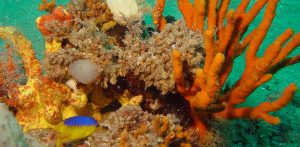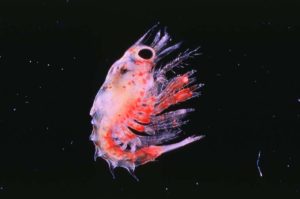While razor clams have virtually disappeared on the eastern shores of Alaska’s Cook Inlet, no one knows exactly what’s caused the clams to crash to historically low levels. One factor under consideration is ocean acidification (OA).
With funding from Alaska Sea Grant, University of Alaska Fairbanks (UAF) graduate student Marina Washburn is testing the extent to which razor clams are resilient or susceptible to acidifying ocean conditions. She’s using a method pioneered by Dr. Amanda Kelley, a marine biology professor at UAF whose Sea Grant-funded research developed a methodology for exposing cockles and littlenecks to varying ocean chemistry. Before Kelley’s study, no experimental work had been done in Alaska on how native bivalves respond to OA.
These data will help researchers better understand how the ocean is changing and how those changes are affecting marine life. That emerging science should also help fishery managers with planning and decision-making, critically important in a state with a $5.8 billion commercial fishery.


